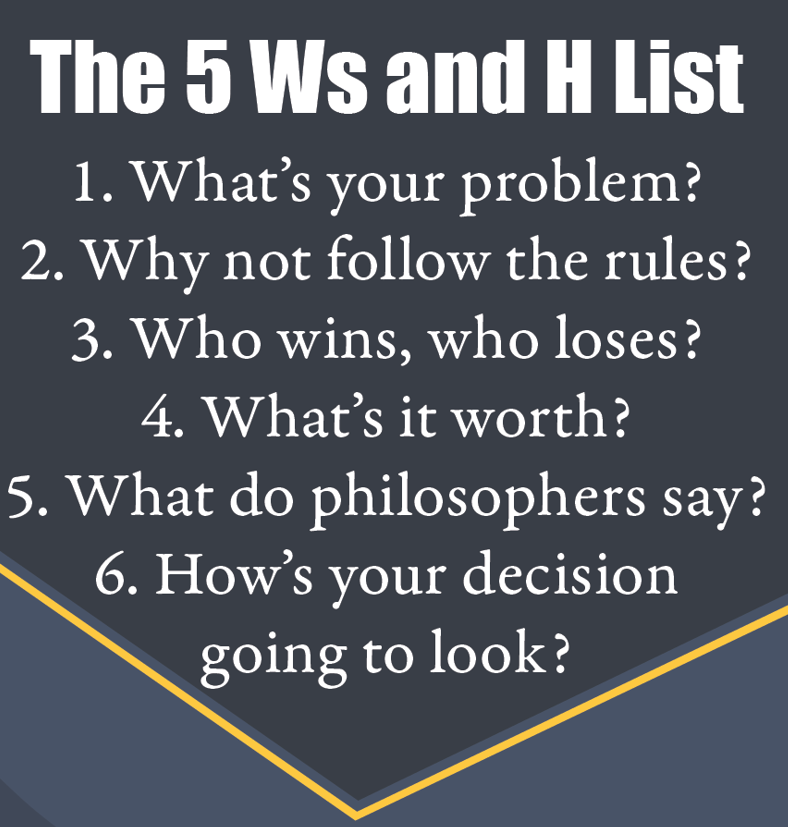By asking and answering these (deceptively) simple questions, you can apply moral philosophy directly, systematically, and publicly to determine whether you have a moral dilemma and ways to deal with it.
The “5Ws and H” list says you should ask and answer:
1. What’s your problem?
Spell out, in some detail, what makes this situation a moral dilemma. Leave yourself with a clearly stated question to be answered. Acknowledge that you may not have complete information.
Consider your loyalties. Identify stakeholders and determine what impact your decision may have on them in the short term and in long term. Who deserves more ethical consideration than others? Is “loyalty” always a good thing?
4. What’s it worth?
Prioritize your values—both moral and non-moral values—and decide which one(s) you won’t compromise.
5. What do philosophers say?
Thinkers throughout history have considered what it means to be moral, and listening to them will help you decide which school of moral philosophy or set of moral principles provides you with a moral compass. Consider at least one of the many ethical approaches: utility, duty, virtue, justice and ethics of care.
6. How’s your decision going to look?
State your conclusion. Be accountable for your actions. Imagine what your friends and people you respect will think about your decision making—not just the decision, but the process.

